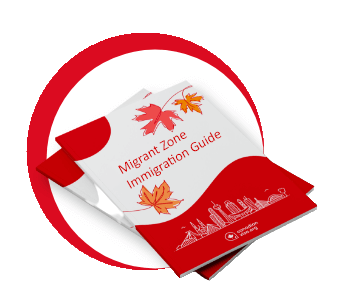Canada is the most educated country in the world in 2021! Approximately 56% of the population has post-secondary education which includes certificates, diplomas, or academic degrees. The Canadian education system has a prestigious reputation, with multiple highly-rated schools, colleges, and universities across the country. Currently, the University of Toronto takes the top spot in Canada with the University of British Columbia and McGill University in second and third place.
Studying in Canada is a more affordable option for thousands of international students each year and offers even more post-graduate work and immigration options for students who want to stay on, and settle in the country permanently. Want to study in Canada? Here's all you need to know about the Canadian education system.
What You Need to Know About Canada’s Education System

Study Permit:
Before COVID-19, If you wanted to study in Canada for less than six months, you didn’t need a Study Permit. However, new regulations require all international students to apply for study permits to study in Canada. What’s more, you may be able to work in Canada as a student if you meet certain conditions. To apply for a study permit you need an acceptance letter from a designated learning institution in Canada. Read more.
Learn English and/or French:
Canada has two official languages, English and French. French is largely spoken in Québec (speakers of French are in the majority), Ontario, New Brunswick, and the other three Atlantic provinces. To study in Canada, you may have to take an approved English or French language test for academic purposes. There are many language testing centers that can assist you.Read more.
Evaluate Your Credentials:
If you have studied outside of Canada and wish to continue your studies in Canada, you will need to have your credentials evaluated by an approved company, university, or college. Read more.
The Structure of the Canadian Education System
Although it varies from province to province, in general, Canadians must attend school until the age of 16, and it’s comprised of four levels:
| Structure of the Canadian Education System | |
|---|---|
| Level | Description |
| Pre-elementary school | Pre-elementary or ‘kindergarten’ is the first stage of education in Canada and is offered to children between the ages of four to five before they start elementary school. |
| Primary or elementary school | Primary education or elementary school in Canada is mandatory for children, starting in grade one, generally at the ages of six or seven, and goes until grade six at the ages of 11 to 12 years old. |
| Secondary school | Secondary education in Canada has two levels: junior high school (grades seven and eight) and high school (grades nine, ten, eleven, and twelve). |
| Post-secondary education | Canadian students have the option to apply to colleges and universities after graduating from high school. |
Universities VS Colleges

Colleges in Canada are typically smaller community colleges or specialized trade schools that grant certificates and diplomas. Some students in Canada will attend college to further prepare for university by obtaining credits that can be transferred over. Universities in Canada are places of higher education where academic degrees such as bachelors, honors, masters, and finally PhDs can be obtained, in a variety of subjects. Read more.
Top Universities in Canada
Education is well-funded and governed in Canada, which is why thousands of international students decide to study at prestigious universities, colleges, and trade schools across the country every year. Globally rated, the top institutions have been ranked for the 2021 school year and many of Canada’s top universities rank in the top 100 worldwide. Read more.
Top 10 Universities in Canada in 2021
- University of Toronto
- University of British Columbia
- McGill University
- McMaster University
- University of Montreal
- University of Alberta
- University of Ottawa
- University of Calgary
- University of Waterloo
- Western University
Choose the Right University or College
Making this decision can often be confusing and stressful. You may, however, want to consider choosing a study program that’s approved for the Post-Graduate Work Permit Program. There are a few factors that can help you choose the right designated learning institution for you. Read more.
How Much Does it Cost to Study in Canada?

The opportunity that a Canadian qualification will give you is priceless but how much will it cost you? Your annual tuition fees will vary depending on the province, city, which program you choose and which one of the many colleges or universities in Canada you decide to enroll in. You can pay anywhere between $29,714 for undergraduate programs and $17,744 for postgraduate programs in Canada. Read more.
College and University Admission
There will be different application processes for each university, college, or trade school with various requirements set by the institution. It’s recommended that you start your application as soon as possible. Read more.
How to Apply for Admission
Check the application dates of your chosen university or college and it’s recommended that you start applying at least 12 months before the application date to allow enough time for your study permit application process that can run for a few months. If you qualify for the Student Direct Stream you can obtain a study permit in as little as 20 calendar days.
Special Education
If your child is struggling in school and needs some extra attention, there are many programs in Canada that can assess and assist children and parents. Read more.
Counseling Services
Schools in Canada consider a holistic approach when dealing with students, from their social well-being to their learning capabilities. Providing a support system at school is encouraged and many programs have been implemented to assist students. Read more.
Extracurricular Activities
Active kids who attend after-school sports and cultural activities are often able to develop skills and talents that can assist them in the future. Organized by schools and private companies, these activities usually take place after school. Read more.
Ready to study in Canada? Our team of student advisors can assist you through the entire process by helping you find a study program that suits your career goals and budget and help you enroll and apply for your study permit. Click below to start the visa application process today and join the excellent Canadian education system.




